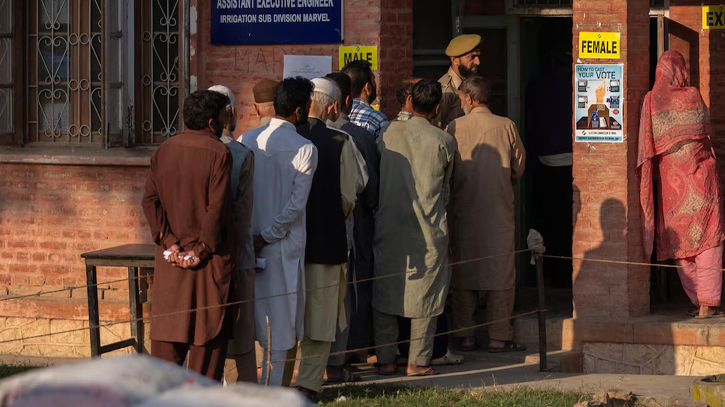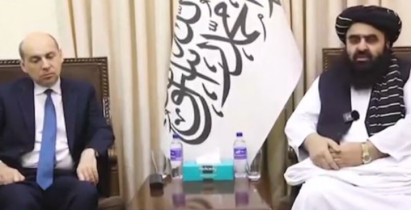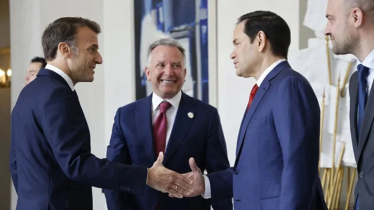
Photo : Collected
The three-phased election for choosing a local government in Indian-controlled Kashmir opened early Wednesday in the first such vote since Prime Minister Narendra Modi’s government stripped the disputed region of its special status five years ago.
Authorities deployed thousands of additional police and paramilitary soldiers in the region’s seven southern districts where over 2.3 million residents are eligible to cast their votes and chose 24 lawmakers out of 219 candidates in the first phase of the polling.
Wearing riot gears and carrying assault rifles, troops set up checkpoints and patrolled the constituencies in the districts as locals lined up to cast their votes in villages and towns.
The second and third phases are scheduled for Sept. 25 and Oct. 1 in a process that is staggered to allow troops to move around to stop potential violence. Votes will be counted on Oct. 8, with results expected that day.
For the first time, authorities limited access of foreign media to polling stations and denied press credentials to most journalists working with international media, including to The Associated Press, without citing any reason. Press passes issued by election authorities are mandatory for journalists to travel and film, photograph or interview voters in a polling constituency.
The vote is the first in a decade, and the first since Modi’s Hindu nationalist government in 2019 scrapped the Muslim-majority region’s semi-autonomy and downgraded the former state to a federally governed territory. It was also divided into two federal territories, Ladakh and Jammu-Kashmir, ruled directly by New Delhi, allowing it to appoint administrators to run the territories along unelected bureaucrats and security personnel.
The multistage election will allow Kashmir to have its own truncated government and a local legislature, called an assembly, instead of remaining under New Delhi’s direct rule. A chief minister will head a council of ministers in the government.
However, there will be a limited transition of power from New Delhi to the local assembly as Kashmir will continue to be a “Union Territory” — directly controlled by the federal government — with India’s Parliament remaining its main legislator. Kashmir’s statehood must be restored for the new government to have powers similar to other states of India.
Multiple local parties have campaigned on promises to fight for reversal of 2019 changes and address other key issues like rising unemployment and inflation in the region where locals have struggled amid curtailed civil liberties particularly after the revocation of the special status.
India's ruling BJP, however, has vowed to block any move aimed at undoing those changes but promised to help in the region’s economic development.
India and Pakistan each administer part of Kashmir, but both claim the territory in its entirety. Militants in the Indian-controlled portion of Kashmir have been fighting New Delhi’s rule since 1989. Most Muslim Kashmiris support the rebels’ goal of uniting the territory, either under Pakistani rule or as an independent country.
India insists the Kashmir militancy is Pakistan-sponsored terrorism. Pakistan denies the charge, and most Kashmiris consider it a legitimate freedom struggle. Tens of thousands of civilians, rebels and government forces have been killed in the conflict.
The region’s last assembly election was held in 2014, after which Modi’s Bharatiya Janata Party for the first time ruled in a coalition with the local Peoples Democratic Party. But the government collapsed in 2018, after BJP withdrew from the coalition.
Polls in the past have been marked with violence, boycotts and vote-rigging, even though India called them a victory over separatism.
Messenger/Sajib








